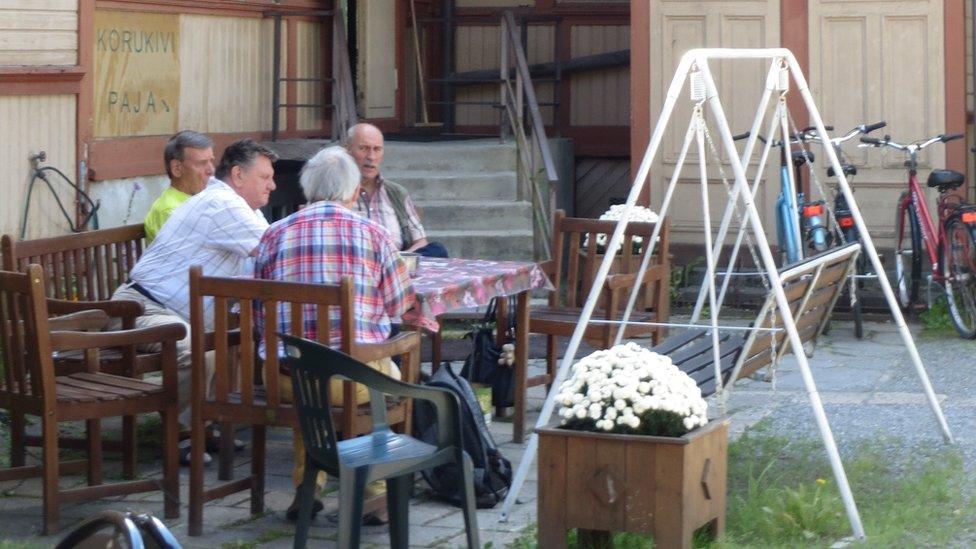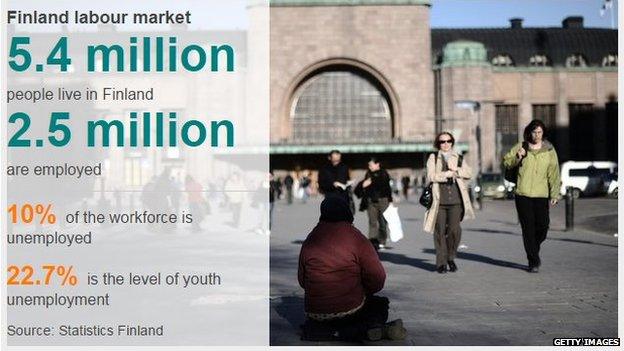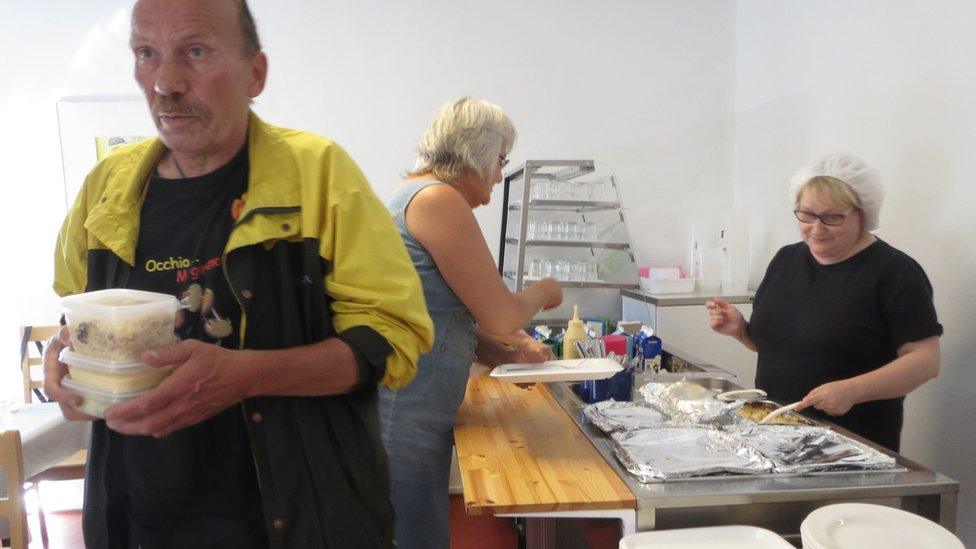Finland considers basic income to reform welfare system
- Published

The unemployment rate in Finland has risen to 10%, slightly above the European Union average
The Finnish government is considering a pilot project that would see the state pay people a basic income regardless of whether they work.
The details of how much the basic income might be and who would be eligible for it are yet to be announced, but already there is widespread interest in how it might work.
Prime Minister Juha Sipila has praised the idea. "For me, a basic income means simplifying the social security system," he said.
The scheme is of particular interest to people without jobs. In Finland, they now number 280,000 - 10% of the workforce.
With unemployment an increasing concern, four out of five Finns now are in favour of a basic income.

Basic income
Paid without any need for work
Paid irrespective of any income from other sources
Additional income subject to income tax
Finland to initiate pilot project
Dutch city of Utrecht to experiment with basic income, external this autumn
UK Green Party advocated similar "Citizen's Income" at 2015 election, external

"A basic income? Yes, I'd gladly have €1,000 (£700, $1,100) a month," says one man at a centre for the unemployed in Pori, near Finland's west coast. But the amount is unlikely to be anywhere near that high.
He is the among the jobless who have come to an old, wooden building in city, where they can get cheap food, shop at a second-hand market, and take part in a variety of activities on offer.

The local unemployment centre provides a focal point for Pori's jobless
"It's a nice place to socialise," says another man sitting on a bench outside, enjoying the summer sun. People here have been out of work for a long time.
"A basic income would encourage people to take a temporary job," says Paivi Hietikko, who helps out at the centre. Although she has no regular income at the moment, she does receive a payment for her work here.
"Having a basic income would mean the bureaucracy I´ve encountered at the employment agency would decrease."
Finland labour market
5.4 million
people live in Finland
2.5 million
are employed
-
10% of the workforce is unemployed
-
22.7% is the level of youth unemployment

In Finland, taking on work can cost you money if you are unemployed.
A paid temporary job means lower welfare benefits.
And if that job comes from a low-wage sector, you lose out because there is a delay before the authorities allow your benefits to be restored once you have left the job.
Fundamental change
Many Finns nowadays have what are described as atypical working lives, in that few spend their entire lives in the same occupation and with the same employer.
This fundamental change has prompted a need for reforms to the social security system.
Supporters of the basic income believe it could offer an alternative to Finland's complex and costly benefit models.
Paivi Hietikko certainly sees its potential advantages - but she also wonders whether it would deter people from looking for work.

In Finland, equality of sex, age and origin is enshrined in the constitution
"The young especially might lose the motivation to look for a job, if it was, say, €700 a month. That would be too much," she says.
This has become one of the main concerns surrounding the idea.
But experts say it is too early to tell what the outcome would be.
"What would be the impact of a basic income to employment in Finland - positive or negative? We can't really foresee how people would behave with a basic income," says Ohto Kanninen, from the Tank research centre, external.
So the pilot project aims to get some answers.
Equality obstacle
The prime minister has expressed support for a limited, geographical experiment. Participants would be selected from a variety of residential areas.
Mr Kanninen proposes testing the idea by paying 8,000 people from low income groups four different monthly amounts, perhaps from €400 to €700.
"If the impact on employment during the experiment was catastrophic, basic income would of course not be implemented on a large scale," he says.
One obstacle to staging a pilot project is Finland's constitution, external, which states that every citizen must be equal.
Even a small-scale experiment would put its participants in an unequal position.
However, Finns may be prepared to waive that principle of equality, if an experiment produces valuable information for society.